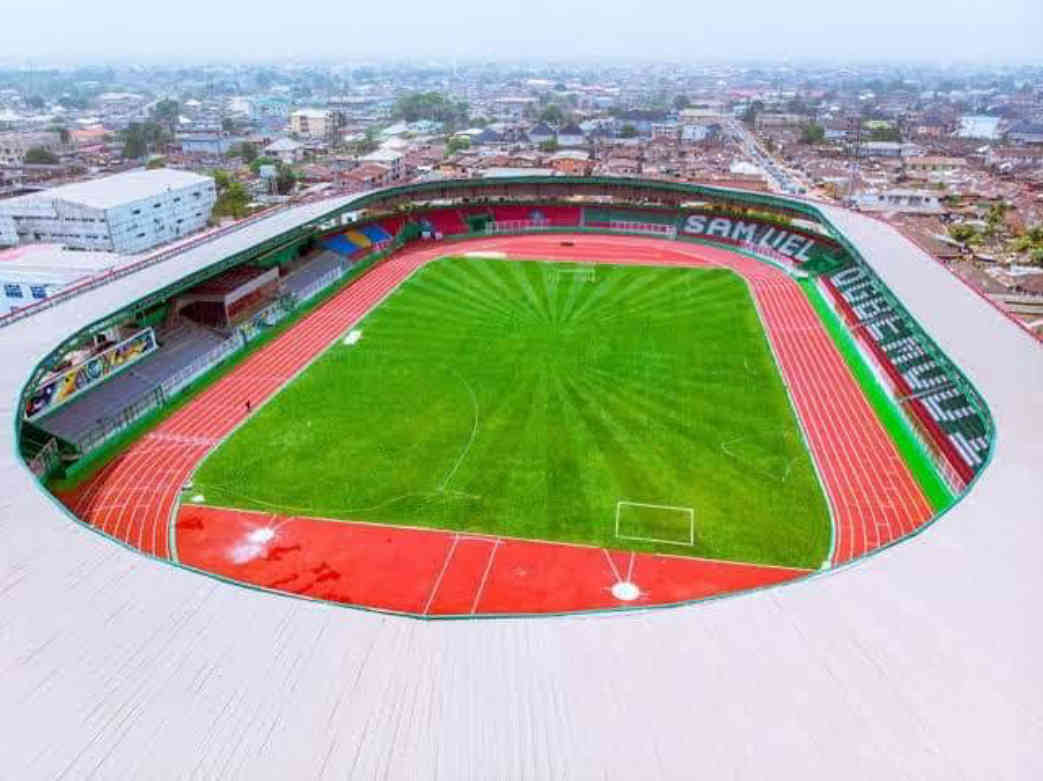Nigeria boasts a growing roster of football and multipurpose stadiums that reflect the nation’s passion for sports and community development.
From modern international arenas designed to global standards to grassroots pitches buzzing with local energy, each stadium tells a story.
This 2025 report explores the infrastructure, capacity, and historical significance of Nigeria’s most prominent stadiums, based on user reviews, government updates, and public usage trends.
Table of Contents
Lagos: Nigeria’s Stadium Powerhouse

As the nation’s economic capital, Lagos is naturally home to some of the most active and historically relevant football grounds in the country.
From elite venues to community-centered fields, Lagos offers a spectrum of stadium experiences.
Teslim Balogun Stadium
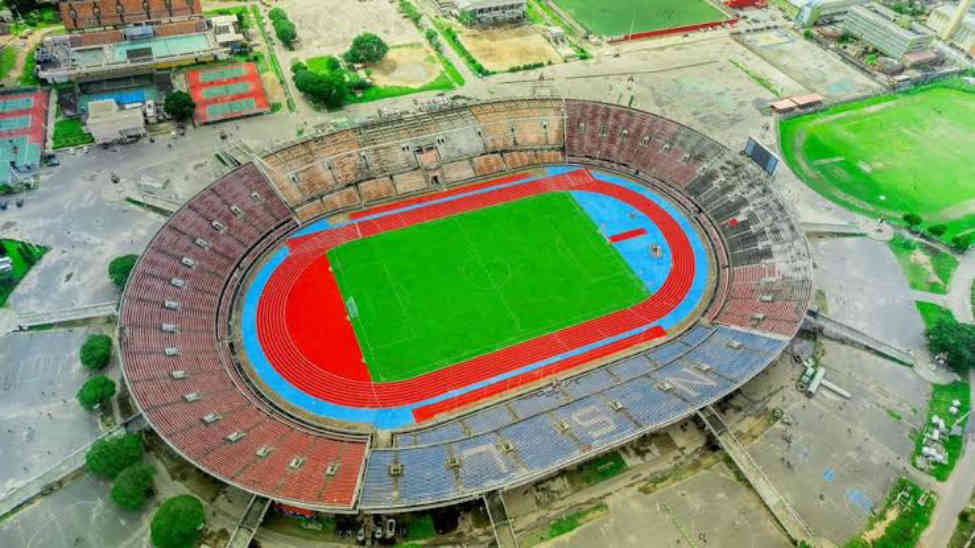
Located in Surulere, this Stadium is one of the most prominent in Nigeria’s southwest and Africa at large.
It has an approximate seating capacity of 24,000 and is sometimes used for nigeria national team matches and Lagos State football events.
What distinguishes it is its modern design and proximity to the National Stadium complex. Users rate it 3.9 out of 5, commending its “well-equipped and bustling” nature despite occasional maintenance concerns.
Address: Alhaji Masha Road (Alh. Masha Rd), Surulere, Lagos.
Details: Opened in 2007 after 23 years under construction (started in 1984) under multiple military regimes.
Capacity: It stands at 24,325 with a grass surface and sustainable tropical modernist architecture. It hosted the 2009 FIFA U‑17 World Cup matches and the 2012 National Sports Festival.
Recent updates include facade redesign using modern aluminum composite panels and upgrades like hospitality suites and CCTV.
Condition: Functionally active, hosting local matches and events, though user complaints occasionally cite maintenance lapses.
Rating: 3.9
Onikan Stadium
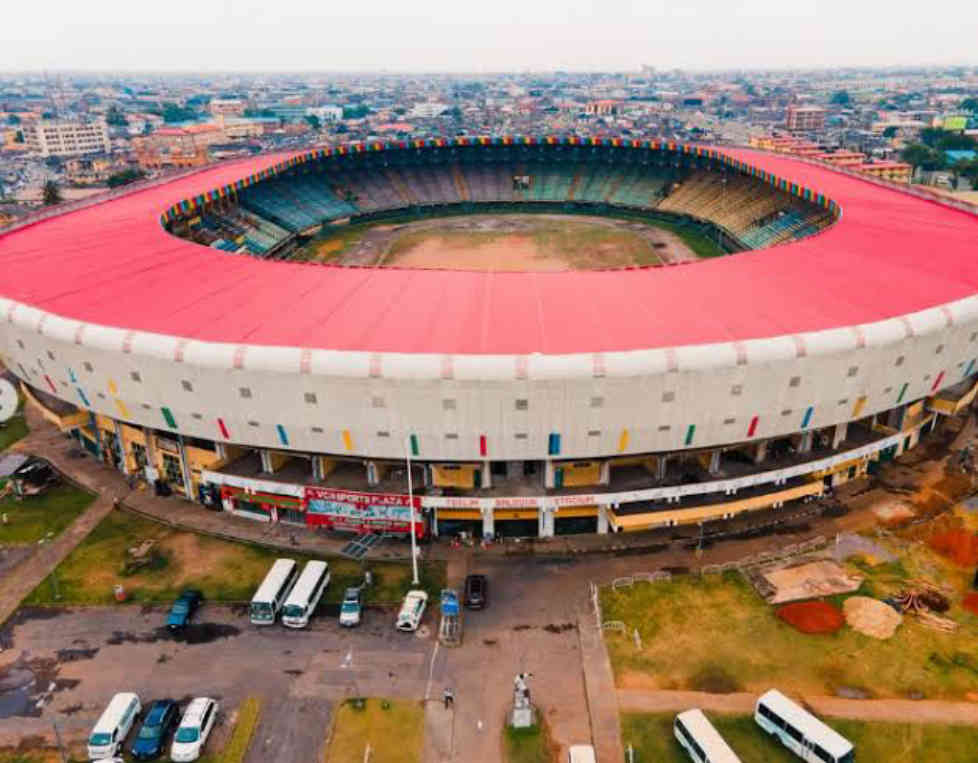
Renovated in recent years, Onikan Stadium (now Mobolaji Johnson Arena) sits on Lagos Island with a capacity of around 10,000.
It’s known for its accessibility and relatively modern viewing booths. Onikan is pivotal for local league matches, especially for clubs like Ikorodu United and Stationery Stores FC.
It holds a strong 4.1-star rating from over 1,900 reviews, which is solid enough for a stadium that has been renovated.
Address: 24–26 Stadium Road, Lagos Island, Lagos.
Built: Originally constructed in 1948, and renovated over time. Serves NPFL clubs (e.g., Stationery Stores FC).
Capacity: It has a capacity of around 10,000 and upgraded with modern viewing booths and spectator facilities. It also have heavy usage, but the infrastructure feels dated in spots.
Rating: 4.1
Agege Stadium (Ijaye)
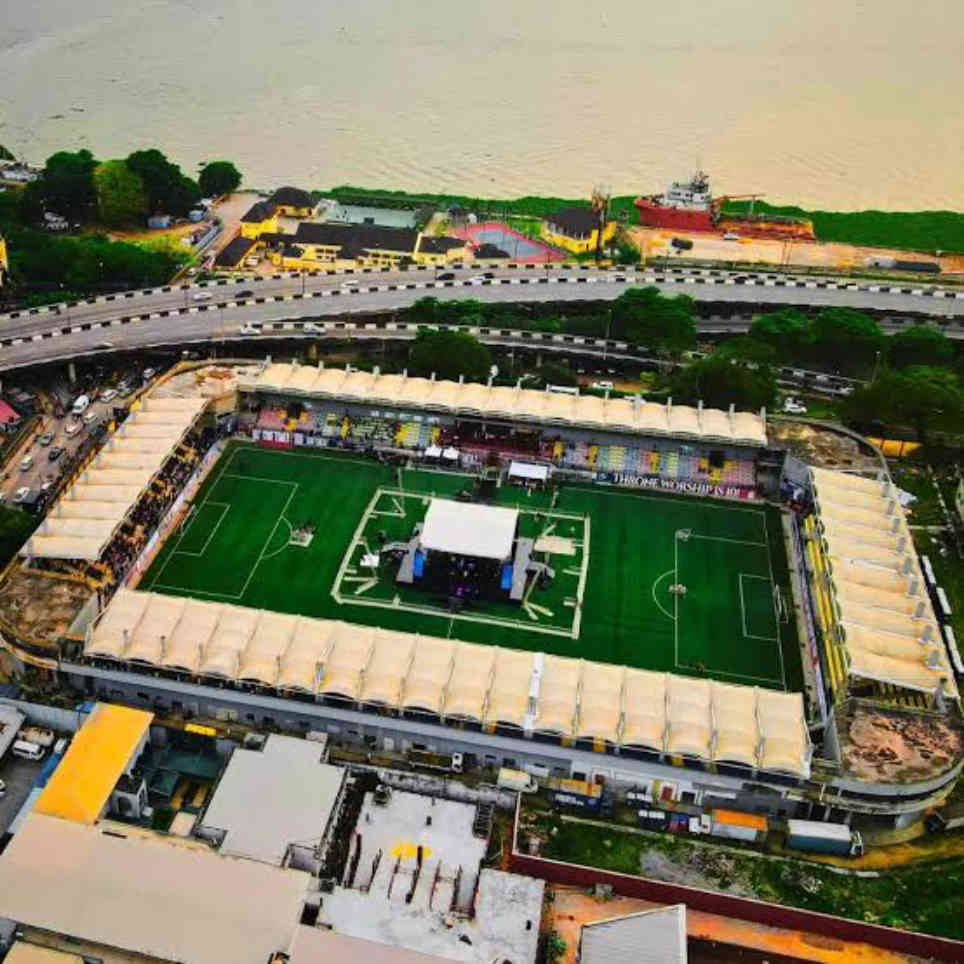
Agege Stadium has gained popularity for its multipurpose layout and community integration. While its capacity is modest, estimated at 4,000 to 5,000, it’s a favorite for youth tournaments and state football programs.
The facility includes a gym, jogging tracks, and adequate parking, earning it a 4.0-star rating.
Address: Agege Stadium Road, Ijaye, Agege, Lagos, next to the local Sports Council office.
Built: Renovated in the late 2000s; exact original date unclear.
Capacity: It hold 4,000–5,000 which Includes multi‑use facilities like a gym, jogging tracks, and parking. The condition is generally good, making it popular for youth leagues and community events.
Rating: 4.0
Godswill Akpabio International Stadium, Uyo
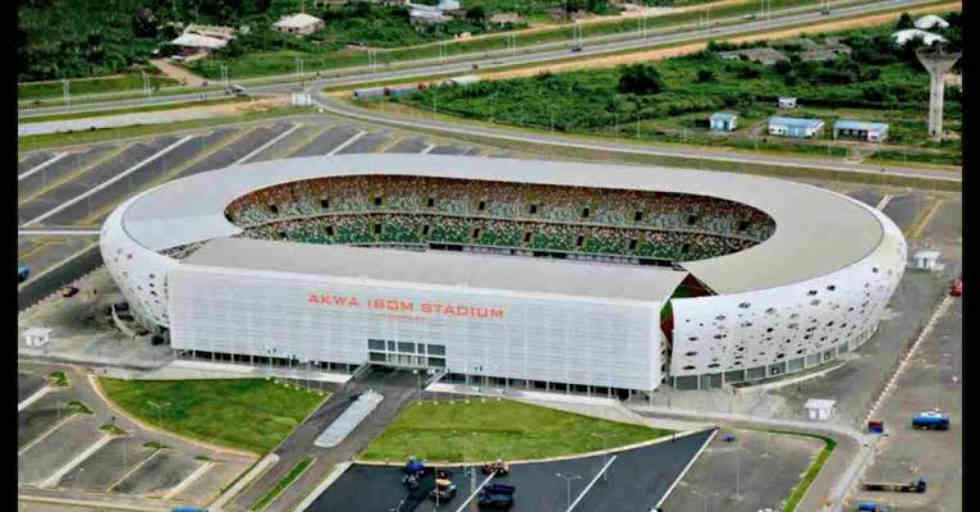
Nicknamed the “Nest of Champions,” this world-class stadium was commissioned in 2014 and boasts a capacity of 30,000 seats.
With its beautiful design, excellent drainage, and FIFA-standard pitch, it remains Nigeria’s most celebrated stadium.
It’s the preferred venue for Super Eagles matches and top-tier league games.
User reviews average 4.5 stars, with glowing remarks about its safety, cleanliness, and crowd control.
Address: Off New Stadium Road, Uyo, Akwa Ibom State, 520102.
Built: Ground broken in 2012; completed and opened on November 7, 2014.
Capacity: 30,000, it was built by Julius Berger at a cost of approximately $96 million, modeled after the Allianz Arena.
Features include bulletproof VIP/VVIP sections, twin digital scoreboards, floodlights, a running track, a helipad, and robust safety systems (30 emergency exits, CCTV, metal detectors).
Condition: Top-of-the-line; clean, secure, regularly used for national matches and events. User reviews often mention its cutting‑edge feel and crowd control.
Rating: 4.8
Uyo Township Stadium
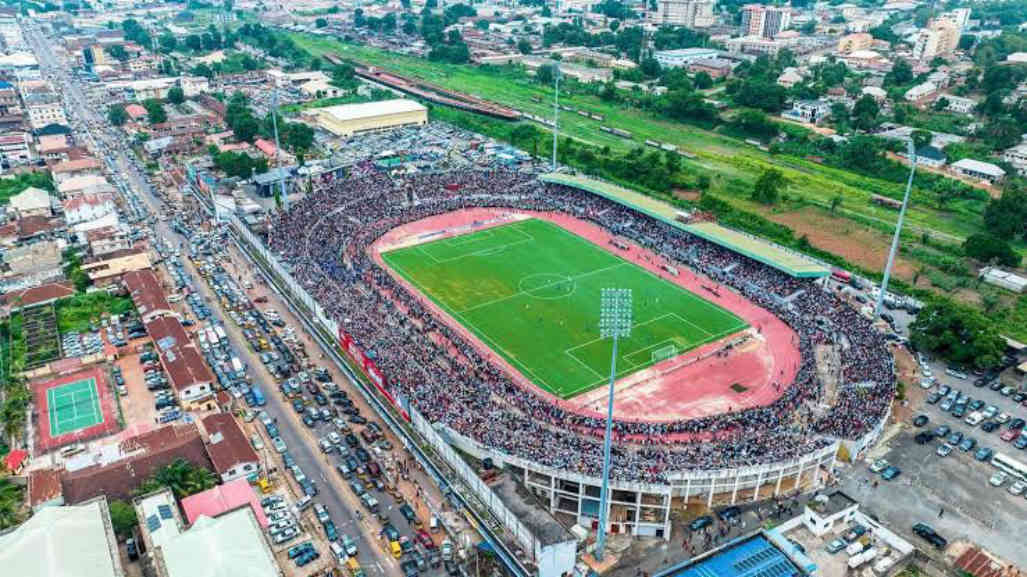
While less glamorous than the Akpabio Stadium, the Uyo Township Stadium plays an essential supporting role in the region’s sports calendar.
With a 3.8-star rating and basic infrastructure, it continues to host local tournaments and training sessions. Capacity is estimated at around 5,000.
Address: Within Uyo city, near the town center; adjacent to local government sports facilities.
Built: Earlier than Akpabio Stadium, exact year unknown.
Capacity: 5,000.
Condition: Basic infrastructure, frequently used for local league matches and practice sessions.
Rating: 3.8.
Nnamdi Azikiwe Stadium, Enugu
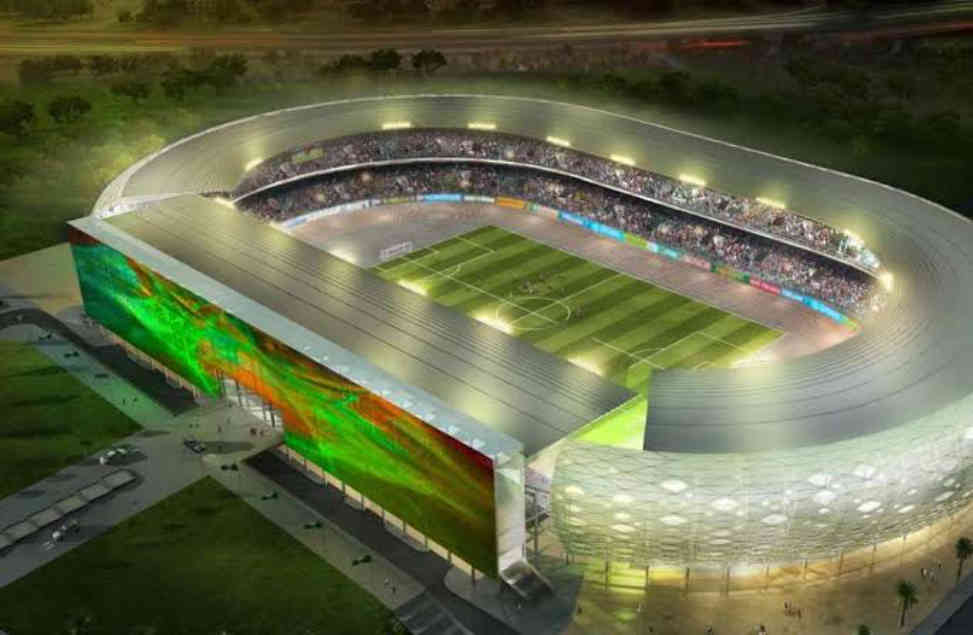
With a rich history dating back to the colonial era, this stadium is home to Enugu Rangers, one of Nigeria’s most storied football clubs.
Its seating capacity hovers around 22,000. Though older and in need of modernization, it still serves as a cornerstone of Enugu’s football tradition. It receives a respectable 3.9-star rating.
Address: Enugu-Oji Road, Enugu, East flank of the city center.
Built: Opened in 1959, renovated around 1970. Capacity approximately 22,000. This historic venue hosted 1999 FIFA U‑20 and 2009 U‑17 matches, plus countless club and cultural games.
Condition: functional but older; modernization needed.
Rating: 3.8
U.J. Esuene Stadium, Calabar
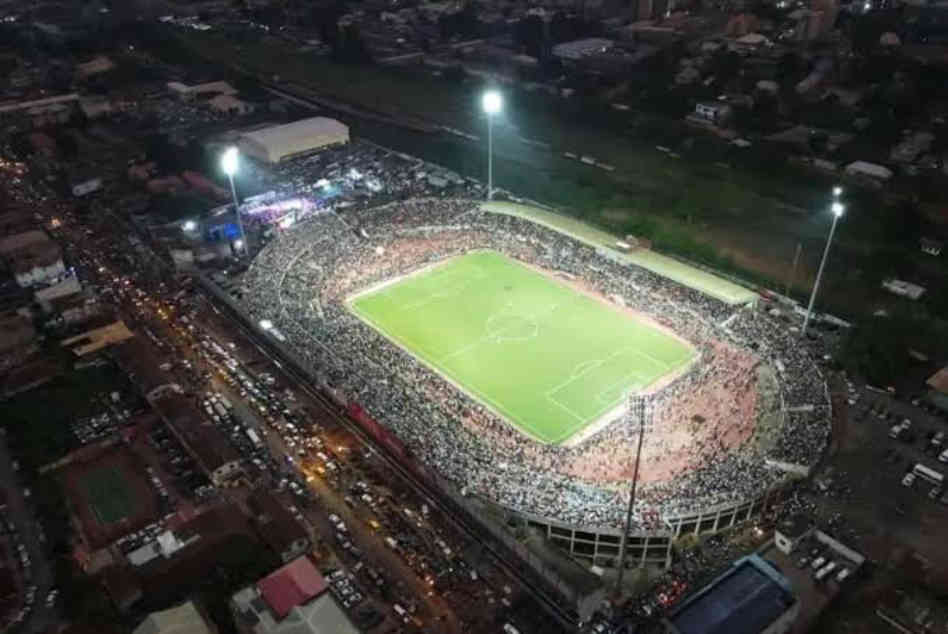
Constructed in the 1970s, U.J. Esuene once hosted major international tournaments, including underage FIFA events.
Despite an aging infrastructure, the stadium is remembered fondly for its “relaxing vibe” and historic matches.
With a 3.8-star rating, it’s still in active use for state and national events.
Address: Calabar, near the Polo Club Road.
Built: 1970s.
Capacity: The Esuene Stadium can hold 16,000 spectators.
Condition: Hosted underage FIFA tournaments. While aging, it still sports a relaxed atmosphere and remains a cultural staple.
Rating: 3.8
Adokiye Amiesimaka Stadium, Igwuruta
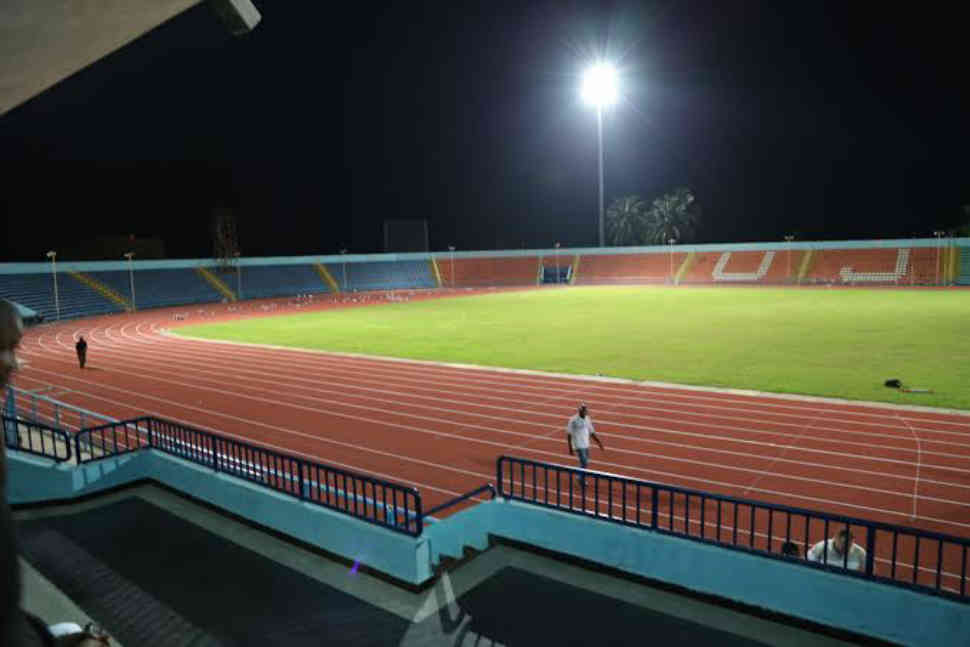
This massive complex near Port Harcourt is one of Nigeria’s largest, occupying several acres of land. It has an estimated capacity of 38,000.
Though underutilized, the stadium is well-constructed and suited for future expansion of elite football and athletics. It currently enjoys a 4.2-star rating.
Address: Oroworukwo, Port Harcourt (exact street in Igwuruta area).
Built: Unknown.
Capacity: 38,000.
Condition: Strong infrastructure, underused presently.
Rating: 4.2
Yakubu Gowon Stadium, Port Harcourt
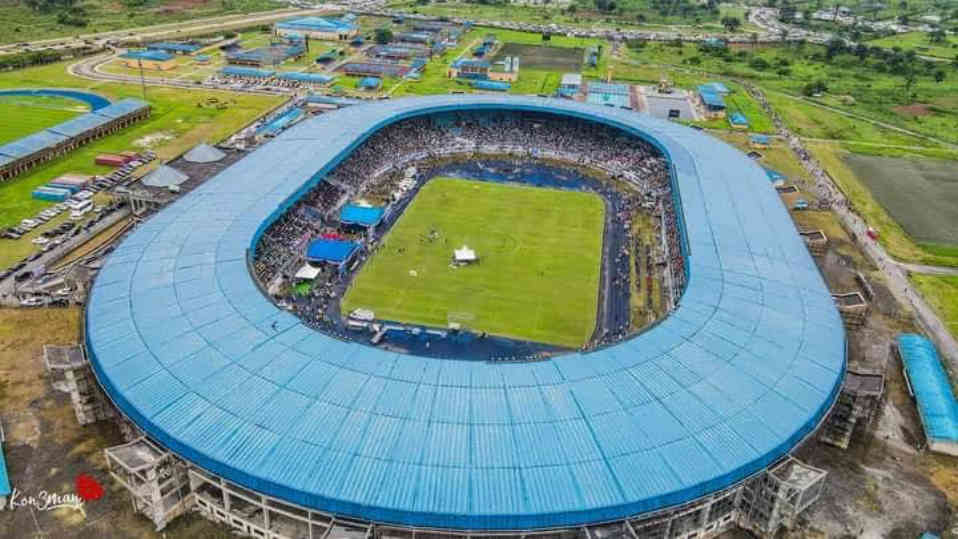
A central sports hub in Rivers State, the Yakubu Gowon Stadium (formerly Liberation Stadium) is frequently used for Rivers United FC matches.
It seats approximately 16,000 and is praised for its accessibility and decent pitch condition. User reviews rate it 3.8 stars.
Home of Rivers United.
Address: Off Stadium Road, Port Harcourt.
Built: Mid 2000s.
Capacity: 16,000.
Condition: Functional, accessible, pitch in decent shape.
Rating: 3.8.
Lekan Salami Stadium, Ibadan
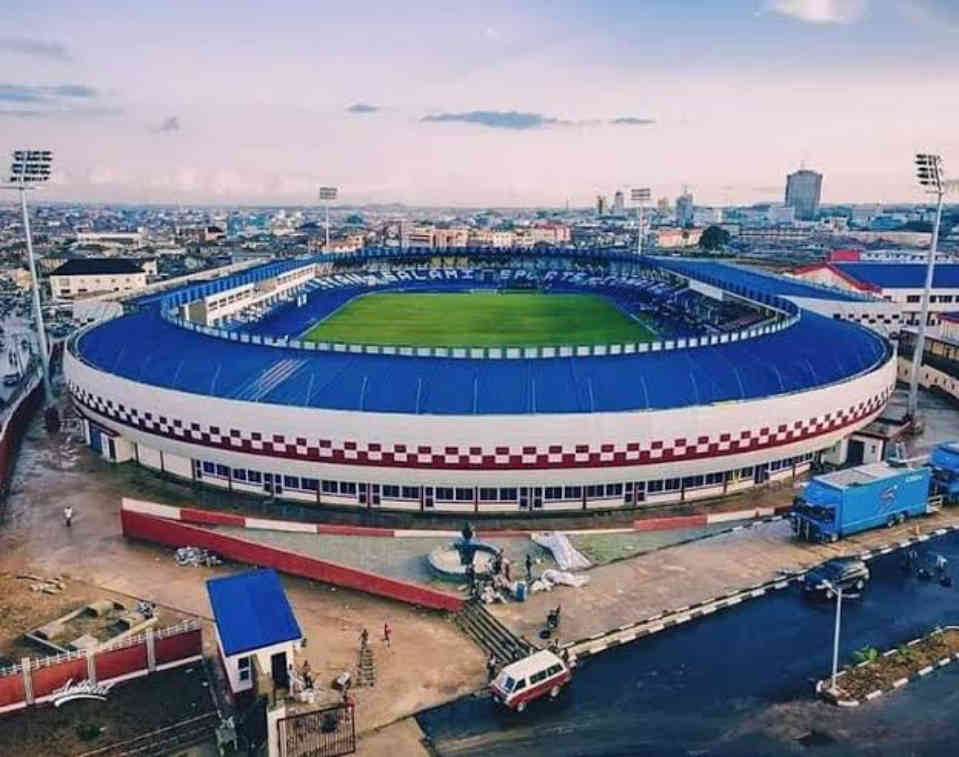
This iconic stadium in Oyo State has seen recent renovations, including new floodlights, covered seats, and upgraded dressing rooms.
It accommodates around 20,000 spectators and is home to Shooting Stars SC. Reviewers give it 3.9 stars, citing improvements in lighting and infrastructure.
Home to Shooting Stars SC.
Address: Old Ife Road, Ibadan.
Built: Renovated: 2019–2020; added floodlights, covered stands.
Capacity: 20,000.
Condition: Reviewers praise lighting and comfort.
Rating: 3.9.
Remo Stars Stadium, Ikenne
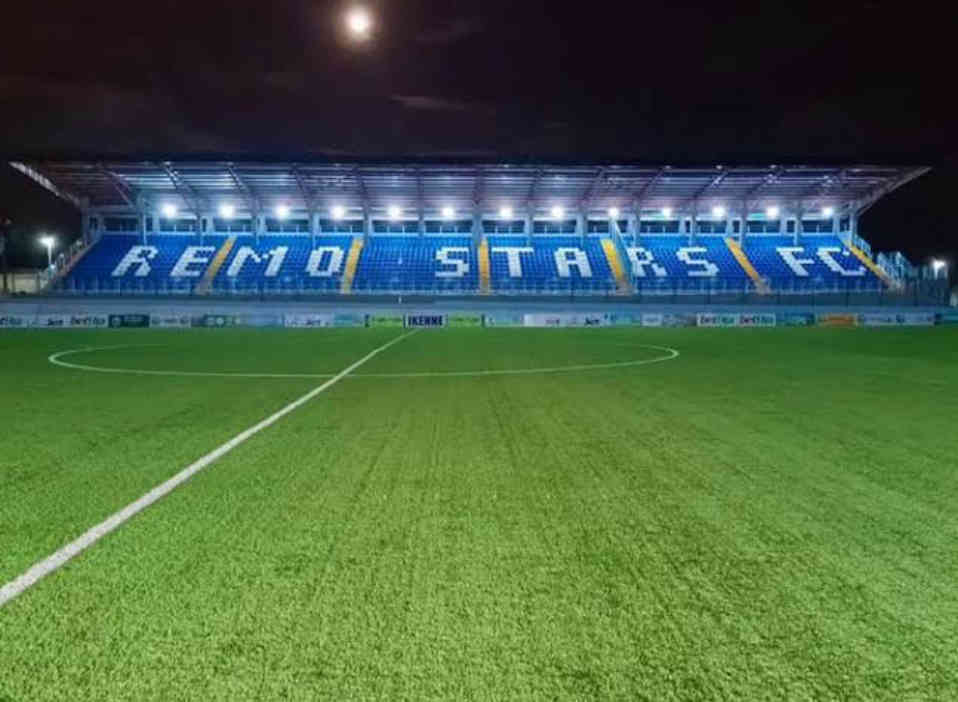
This facility, owned by the privately run Remo Stars FC, is a shining example of modern club infrastructure in Nigeria.
Despite a relatively small capacity (approximately 5,000), its pitch quality and professional management have earned it glowing reviews.
With a 4.7-star average, it’s one of Nigeria’s highest-rated stadiums.
Address: Ikenne, near Sagamu–Ikenne Road.
Built: 2021.
Capacity: 5,000.
Condition: Club-owned, ultra-modern pitch and management. It is one among highest rated facility.
Rating: 4.8
Ahmadu Bello Stadium, Kaduna
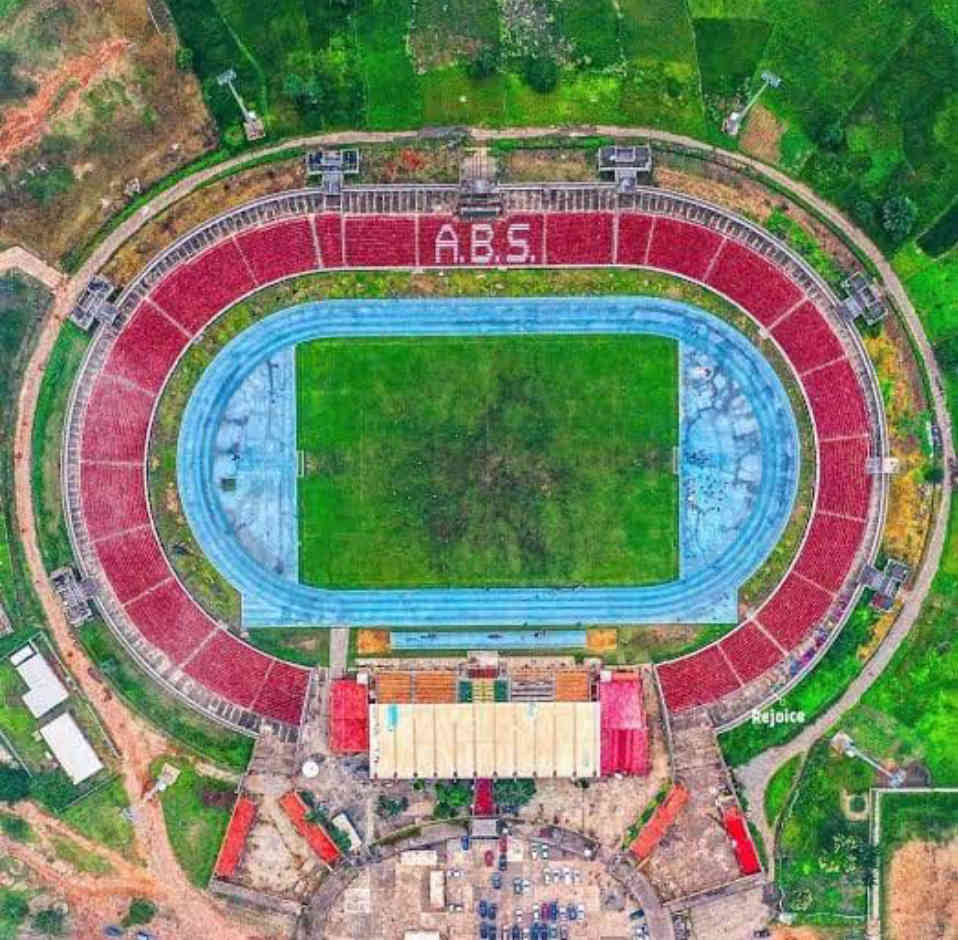
An iconic northern sports venue with a capacity exceeding 25,000, Ahmadu Bello Stadium remains relevant for tournaments and civic gatherings.
Though slightly outdated, it continues to serve Kaduna State with dedication. Users rate it 3.9 stars.
This stadium is still active for football and civic purposes, though visually aged.
Address: Along Katsina Road, Kaduna.
Built: 1960s.
Capacity: 25,000+.
Rating: 3.9
Murtala Square Stadium, Nasarawa
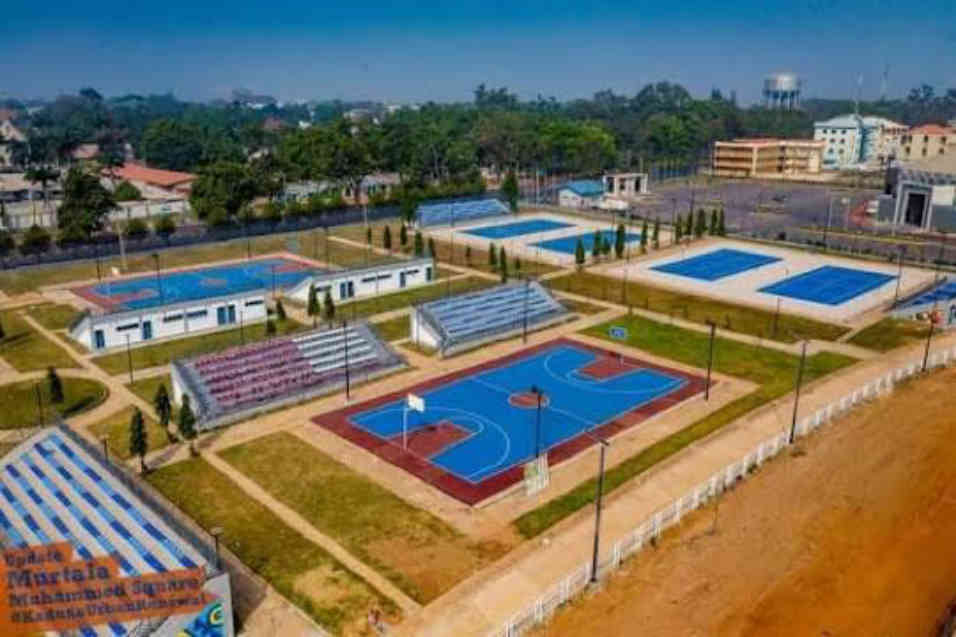
One of the most active centers in the North Central region, Murtala Square is not only a stadium but a multipurpose arena for festivals and parades.
It boasts solid amenities and vast open grounds, leading to a 4.0-star user rating.
Address: Murtala Square, Lafia, Nasarawa State.
Built: Unknown. It was built as a multipurpose stadium used for festivals and sports.
Rating: 4.0
New Jos Stadium
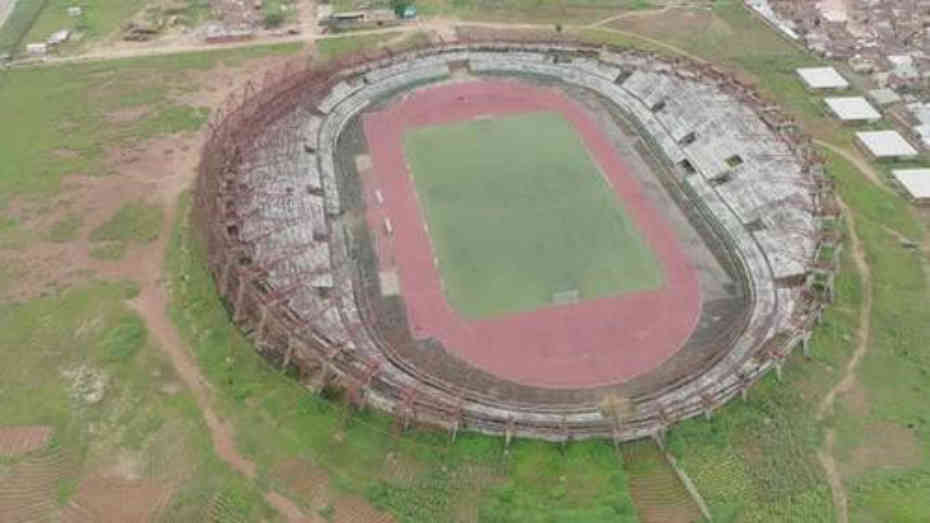
This newer addition to Plateau State’s infrastructure offers well-kept pitch and track facilities.
It’s gaining traction for youth tournaments and athletic meets. Capacity is estimated at 10,000, with a rating of 3.8 stars.
Purpose-built for youth and athletics programs.
Address: Jos, Plateau State (exact address near Rwang Pam Park).
Built: recently.
Capacity: 10,000.
Rating: 3.8
Dan Anyiam Stadium, Owerri
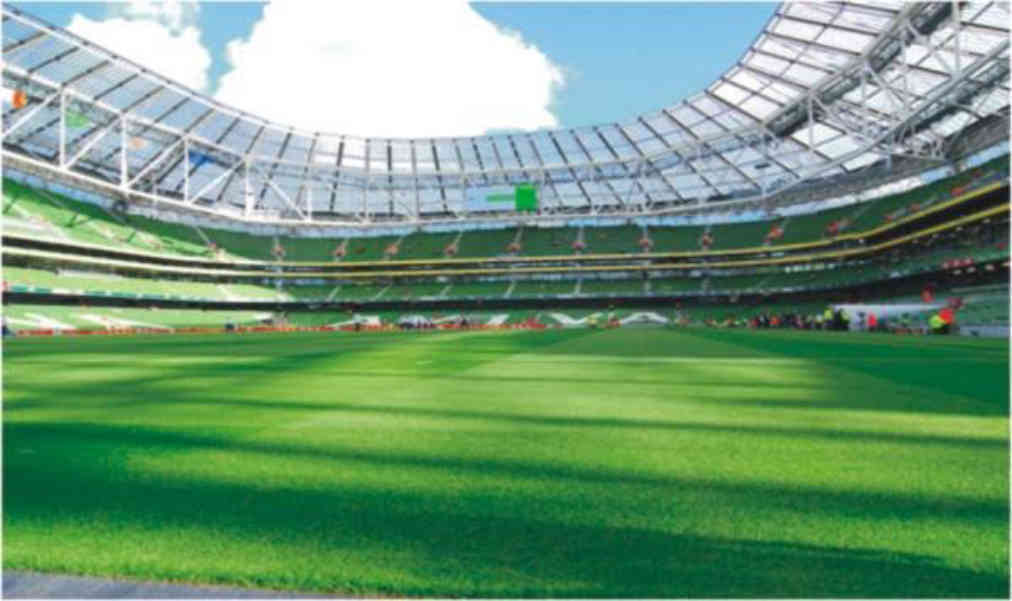
Home to Heartland FC, this stadium has hosted decades of league football.
However, the need for renovations is regularly echoed in reviews.
Though it plays a central role in Imo State’s football culture, its 3.4-star rating reflects ongoing infrastructure concerns.
Exact Address: Along Otisi Road, Owerri.
Built: 1970s.
Rating: 3.4
Ilaro Stadium, Ogun State
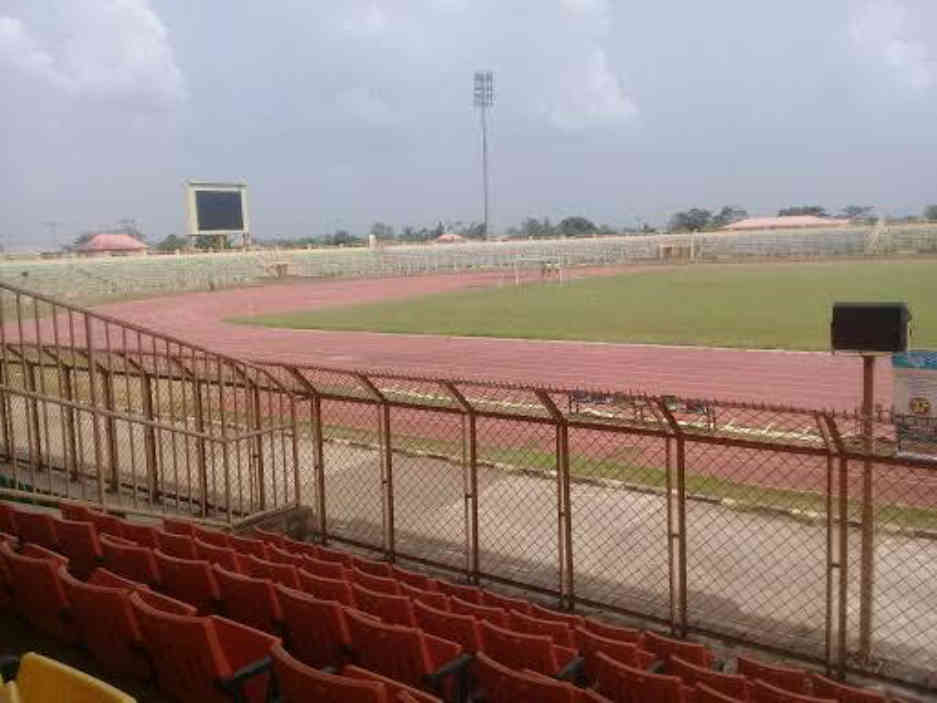
Affiliated with Craig Football Club and Academy, Ilaro Stadium serves a niche developmental purpose.
With basic facilities and limited seating (under 3,000), it’s vital for grassroots engagement and football academies. It holds a 3.7-star average rating.
Exact Address: Ilaro, Ogun State.
Built: Unknown.
Capacity: Small (under 3,000), functional for the academy and grassroots.
Rating: 3.7
Final Whistle: A Nation In Transition
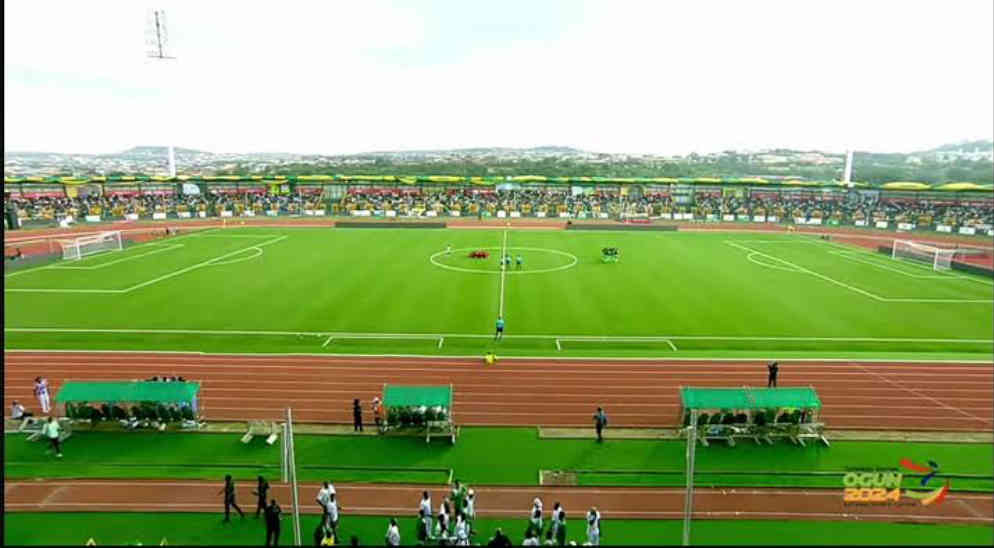
The stadium landscape in Nigeria in 2025 tells a story of contrasts: ageing arenas that demand urgent renewal alongside modern cathedrals that showcase ambition and professionalism.
Flagship venues like the Godswill Akpabio International Stadium in Uyo, the privately run Remo Stars Stadium in Ikenne, and Lagos’ Teslim Balogun Stadium underline Nigeria’s capacity to host football at the highest level. Yet, community grounds Ilaro remain vital in nurturing grassroots talent and sustaining the heartbeat of the local game.
As the country looks ahead to continental tournaments and global partnerships, investment in infrastructure is no longer optional, it is essential. Enhancing security, drainage, seating, and digital systems will not only improve the match-day experience but also strengthen commercial appeal.
A blend of state support, private investment, and innovative club ownership models is already reshaping the footballing landscape. With more than 200 million citizens and one of the world’s most fervent sporting cultures, Nigeria’s stadiums must keep pace with the nation’s ambitions.
From the roar of a full house in Uyo to the passion of a neighbourhood derby in Ikorodu, these arenas are more than bricks and steel, they remain the living pulse of Nigerian football’s future.

